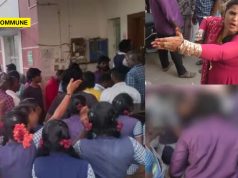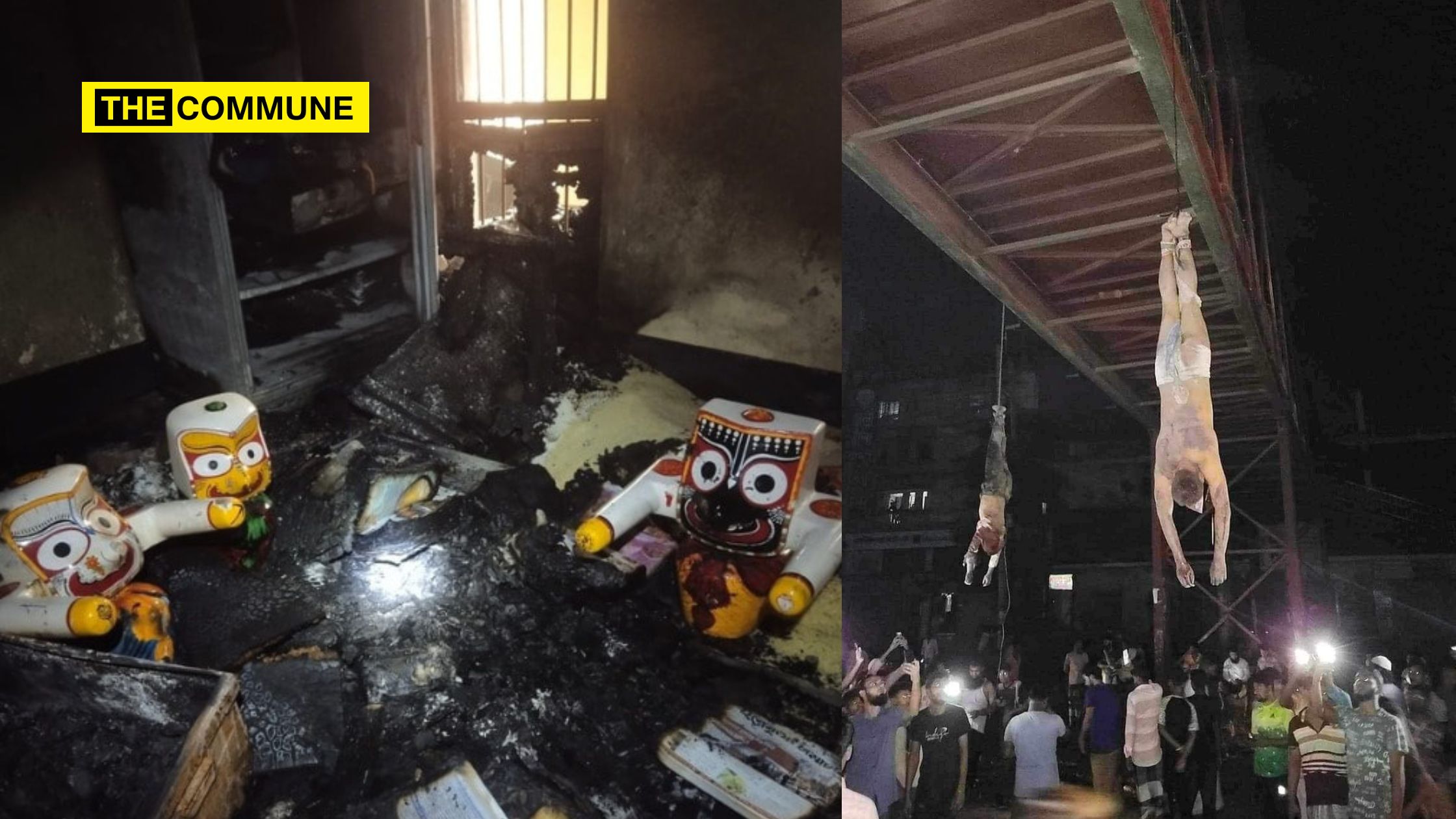
Following the “student protests” and subsequent military coup in Bangladesh that caused former PM Sheikh Hasina to depart from the country, Hindus in Bangladesh have been facing attacks from all sides by Islamists. Hindus in Bangladesh, a minority constituting only about 8% of the total population, are in great peril.
However, leftists and other “placard-holding” influencers are continuously downplaying the looming threat, and the incessant atrocities meted out against the Bangladeshi Hindus in mainstream media.
An example of this threat can be fathomed when we read this message shared in a BNP private Telegram group, which was later forwarded to a public Jamaatis channel – the message urged that “Hindus need to be taught a lesson, so they never find the courage to protest again” and instructed that their suffering be portrayed as a political conspiracy by the Awami League. The message also mentioned plans to infiltrate Hindu protests with Awami flags to discredit their cause.
IMPORTANT FROM BANGLADESH 🚨
A message was shared in a private telegram group of BNP. That message was forwarded to a public channel of Jamaatis. It says that “Hindus need to be taught a lesson so they never find the courage to protest again”, and that the plight of Hindus… pic.twitter.com/tuAytAoG3w
— Nupur J Sharma (@UnSubtleDesi) August 11, 2024
Over the past few days, Bangladeshi Hindus have been sending several distress messages to various Hindu organisations and notable pro-Hindu personalities on social media platforms. Below are messages that Supreme Court advocate J Sai Deepak received on his messenger and email.
These distress messages reflect the terror they live in and that immediate action is necessary.
One Hindu requested that the Indian government be more flexible regarding the legal entry of Bangladeshi Hindus into India, emphasising that most Bangladeshi Hindus are economically prosperous and would not be a burden to the country.
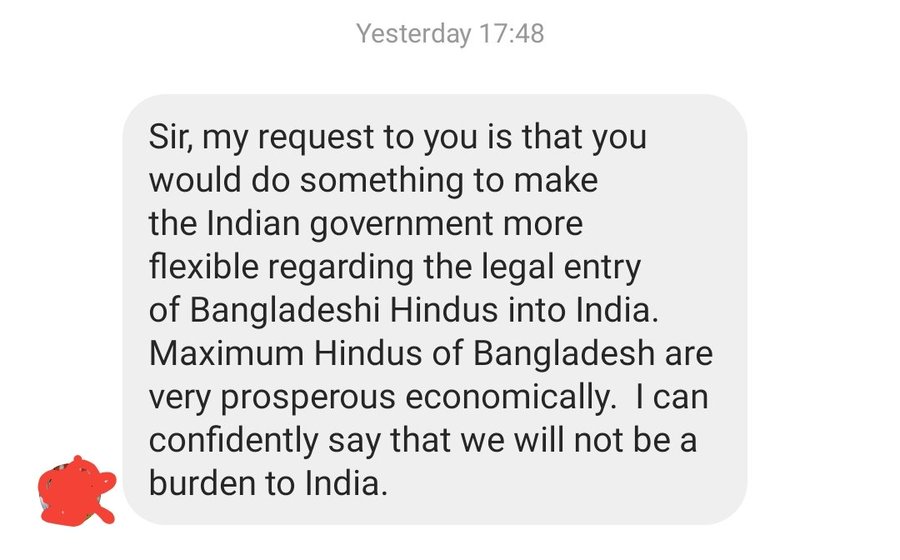
Another Bangladeshi Hindu urgently appealed for help, stating that Hindus are facing an unprecedented genocide, with homes being burned and relatives hiding in fear for their lives. The message warned of Islamist plans to destabilise Indian border states and expand their influence, urging the mobilisation of people to prevent further massacres. The person expressed a willingness to fight until the end and called this a true “Dharm Yudha,” asking for support to prevent the extermination of their community.
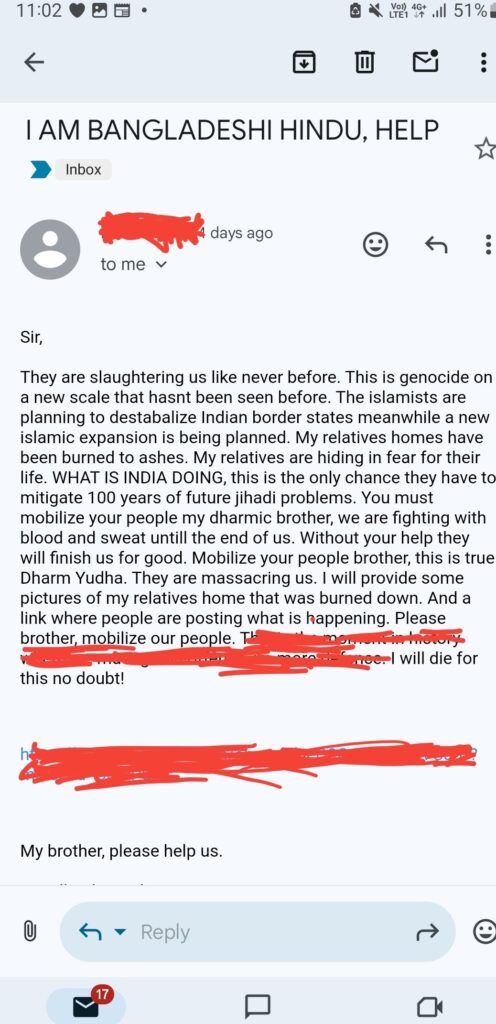
A Bangladeshi Hindu parent expressed deep concern about the increasing violence against Hindus in Bangladesh by radical Islamists. He shared his family’s history of suffering due to staying in the country during past conflicts and that he fears for his young son’s future. The individual, who has been following Mr. Deepak’s work, asked for guidance on the options available for an oppressed Bangladeshi Hindu to seek protection in India and live without fear.
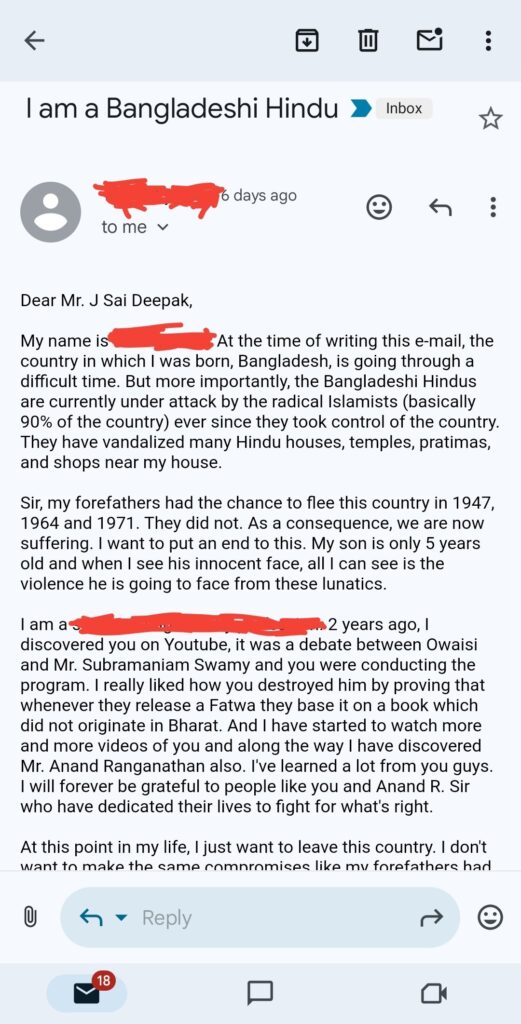
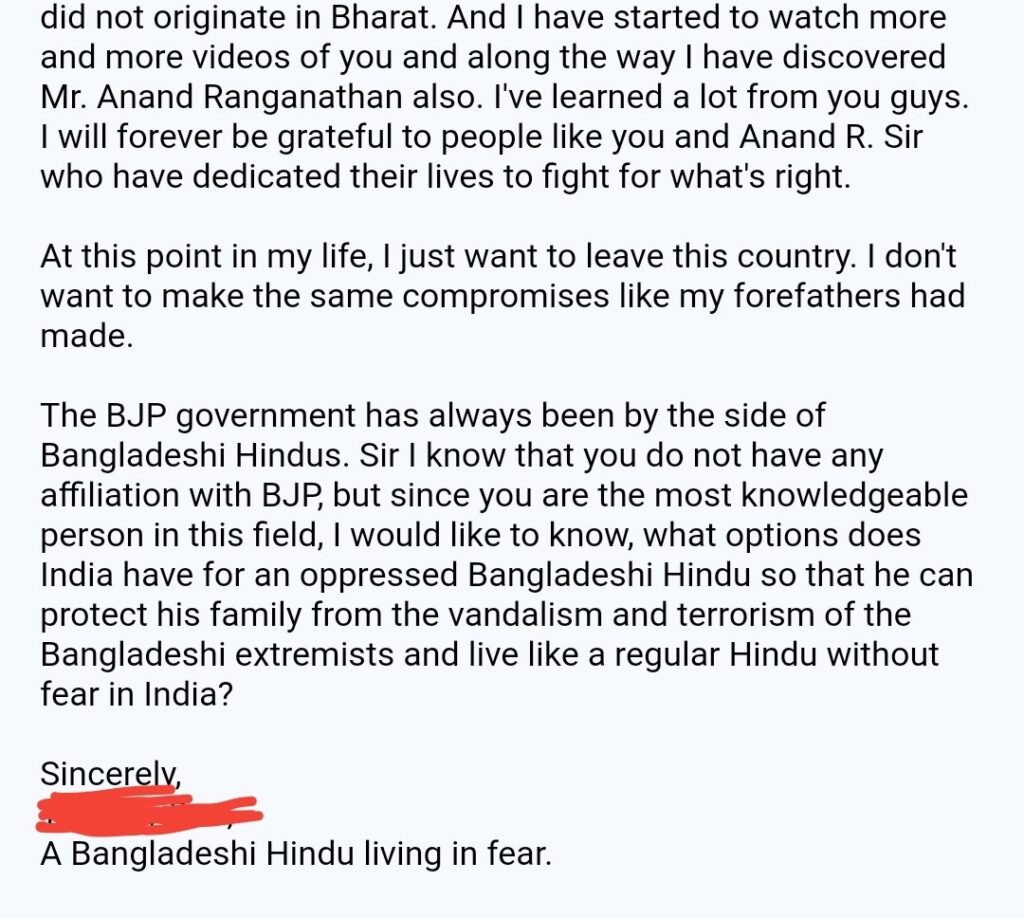
A Hindu from Kolkata, whose grandparents fled Bangladesh during the 1971 liberation war, described the dire situation currently faced by their relatives in Bangladesh. They reported that their cousins’ homes were attacked, forcing them to flee and seek shelter in a single room, living in fear with lights and fans turned off to avoid detection by Islamist extremists. The person also criticized recent media coverage, claiming that photos of Muslims protecting Hindu temples are staged and do not reflect the true severity of the situation.
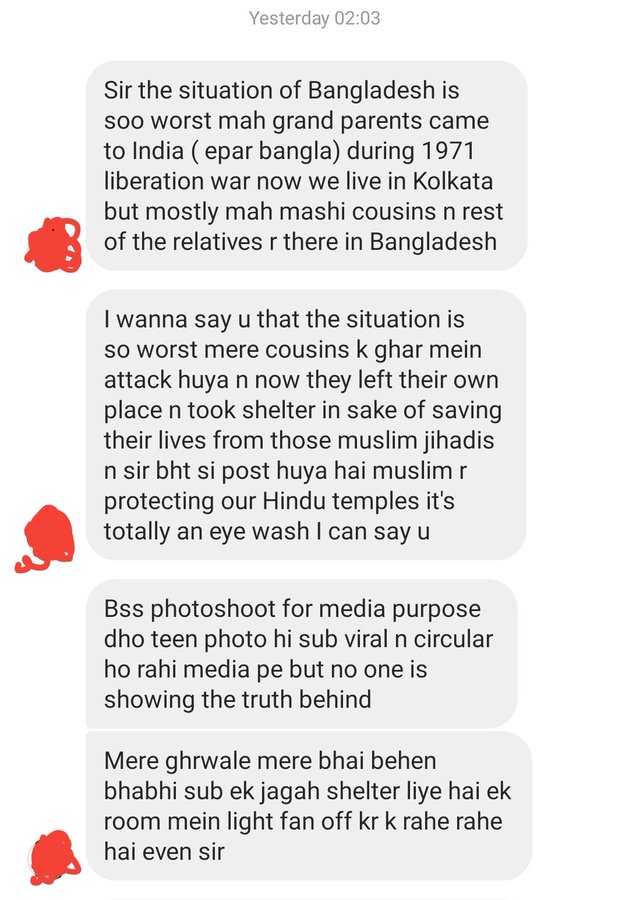
Someone in the UK also messaged Sai Deepak about observing Bangladeshi Muslims’ celebration in the country, marking the resignation of their Prime Minister. When the Hindus approached the crowd, they felt intimidated by how people looked at them. They expressed frustration that many Hindus in India and elsewhere are not fully grasping the seriousness of the situation and are not raising their voices, which they find heartbreaking.
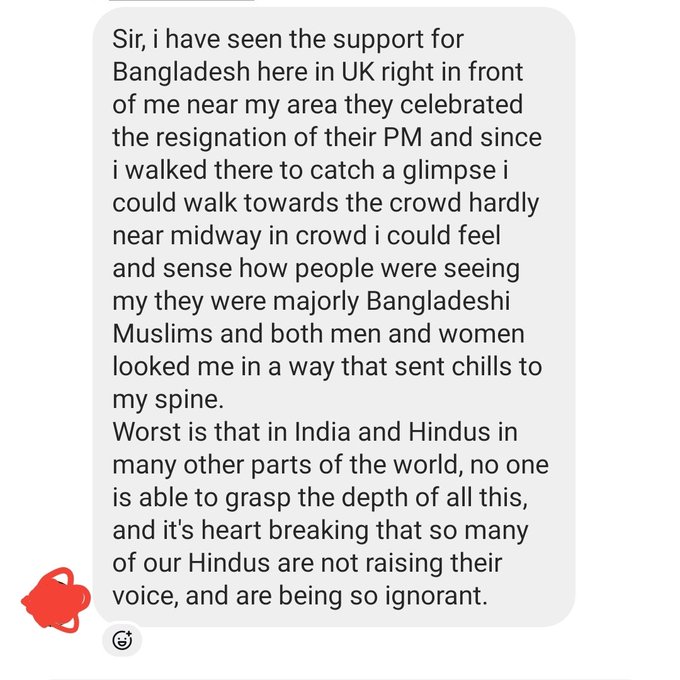
Yet another message from a Hindu girl living in Bangladesh, expressing distress over the recent violence against Hindus and temples in the country. She urged action to address the situation and thanks the recipient.
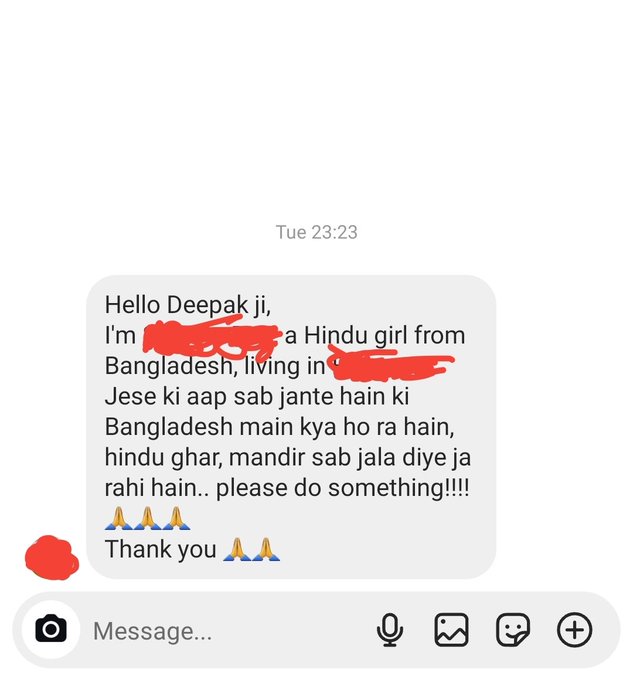
The message is from someone in Bangladesh who requests the recipient to make videos to raise awareness about the suffering of Hindus due to recent communal attacks in the country. They urge the recipient to help and inform the world about the situation.
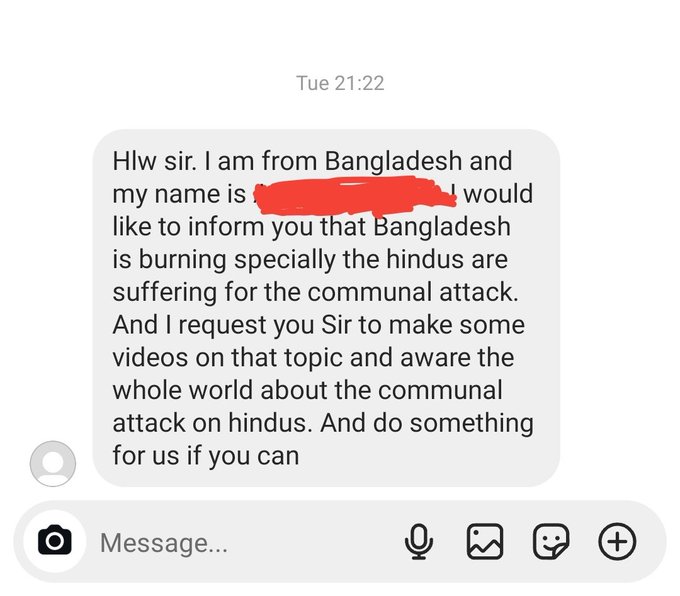
The message is from a Bangladeshi student who reports that the situation is particularly difficult for Hindus in the Jessore and Khulna regions. They request assistance while asking to keep their identity confidential.
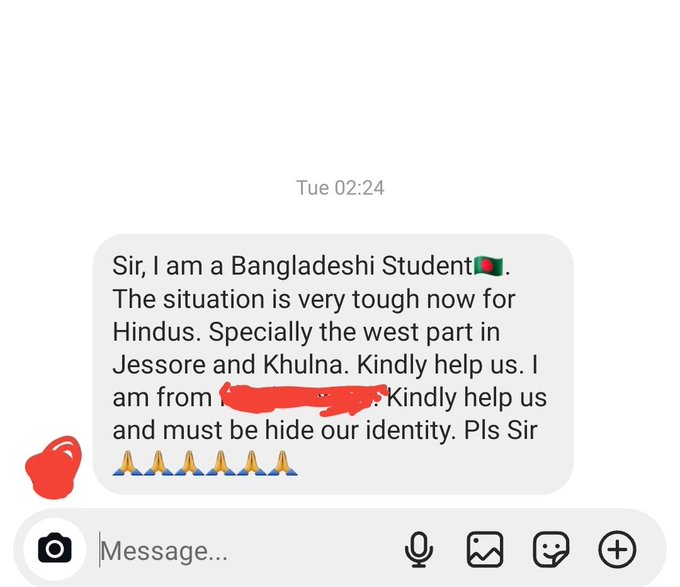
The message describes severe attacks on Hindus in the Sylhet division of Bangladesh, including the burning of temples, looting, and forced occupation of homes. It reports incidents of rape by madrasa students and widespread fear among the Hindu community. The sender urges immediate action to address the violence and prevent a potential refugee crisis, criticising misinformation spread by some Muslim students on social media.
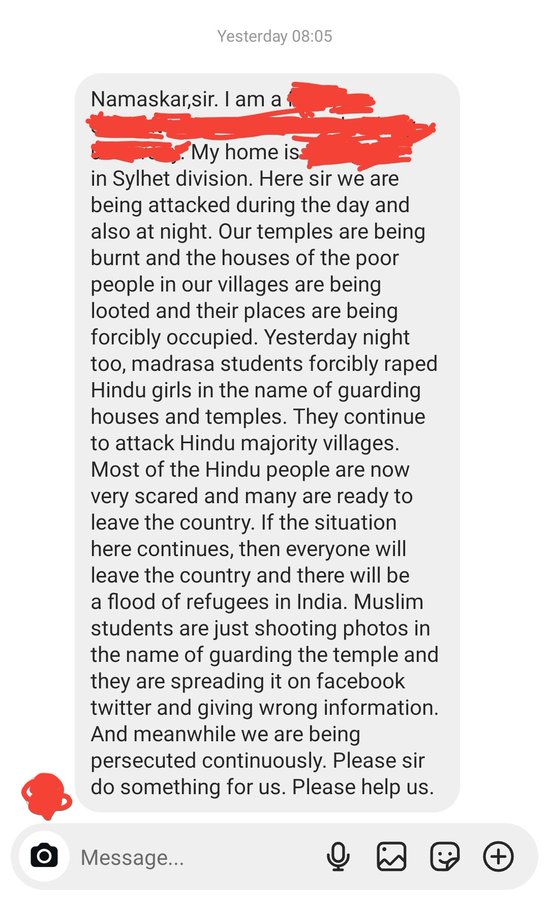
The message highlights that people in Bangladesh are too frightened to share their experiences due to threats of repercussions, leading some to falsely claim that Hindus are safe. The sender, who does not live in Bangladesh, reports that their relatives are terrified and feel they must leave the country. Such distress messages describe the presence of Jamat Shibir goons and the distortion of historical facts, emphasizing that the situation is more severe than just political opposition. The sender requests assistance in finding a safer place for their people.
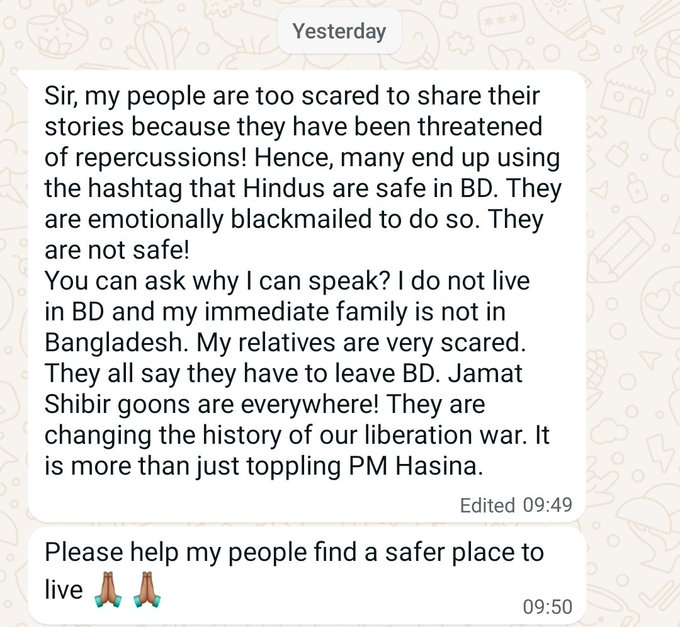
Hindus Living In Ignorance
A Hindu shared their frustration with a friend who dismissed concerns about the ongoing genocide in Bangladesh. The friend was skeptical, saying that nothing like this would happen in India and that the media is untrustworthy, often spreading countless stories like this. When warned that such events could occur in the future unless people unite, the friend’s response was that they had “better things to focus on than genocide,” leaving the person at a loss for words
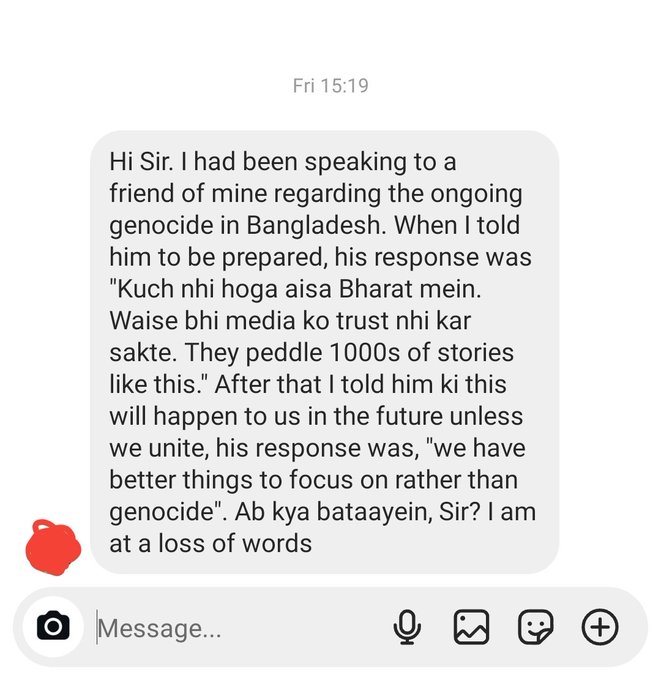
Looting, arson, lynchings, rapes, gang rapes, live rapes, temple destruction, and the ruin of libraries and heritage sites—these atrocities are reminiscent of past horrors like the destruction of Hampi in 1565, the events of 1971, and the 1992 violence. Now, we face similar devastation in 2024. The narrative will likely portray this as a peasant rebellion led by impoverished Bangladeshi Muslims against wealthy Hindus who were seen as informers for India. This so-called secular student-led uprising has led to the burning of Hindu temples and other forms of violence.
Meanwhile in West Bengal, an example of Ummat prevailing over language, culture, and the concept of universal harmony is the Arabic calligraphy that overshadows the Bangla language movement of 1952. This calligraphy is displayed on the wall next to the Shaheed Minar, which was originally a symbol of the struggle for the Bangla language.
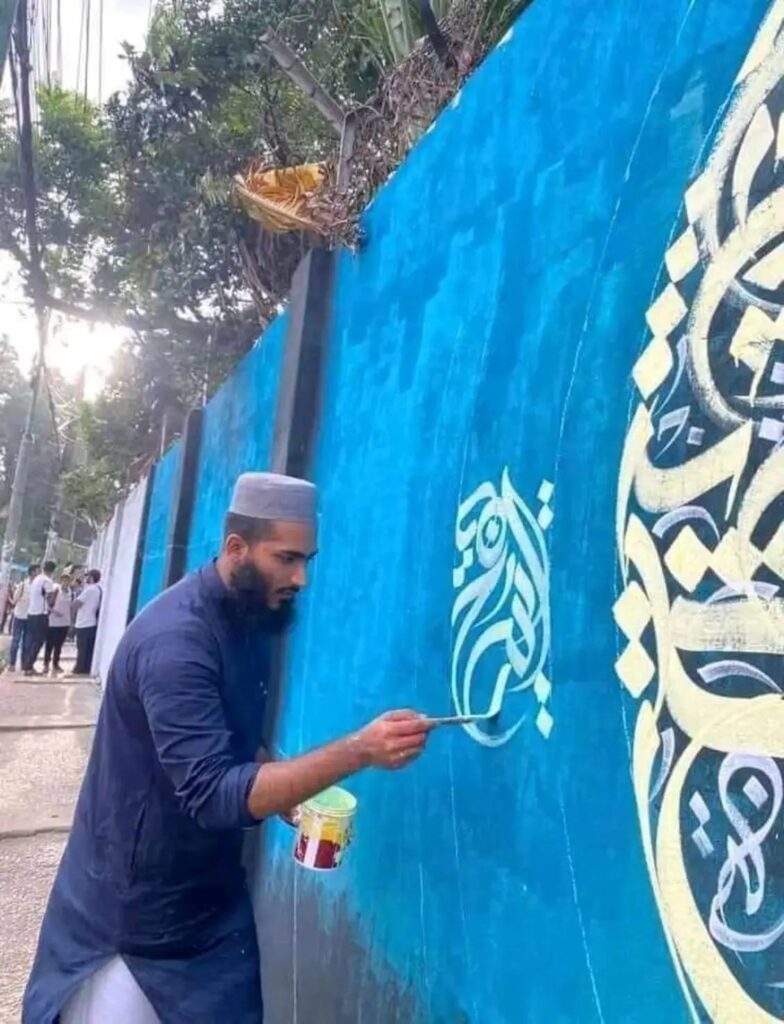
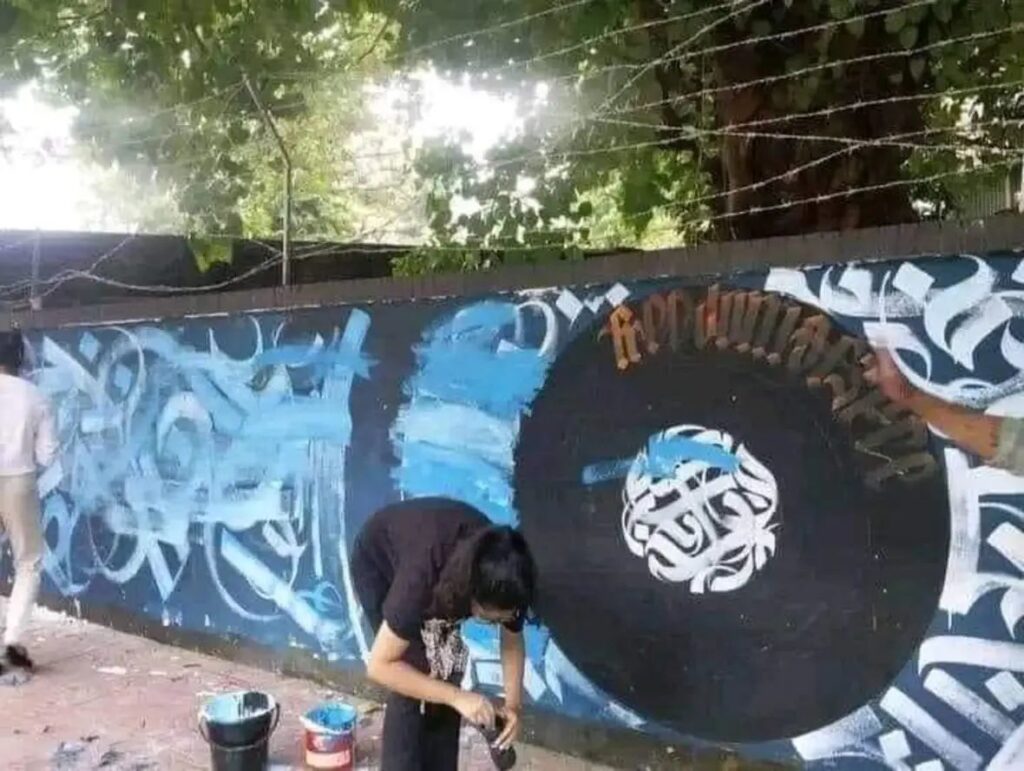
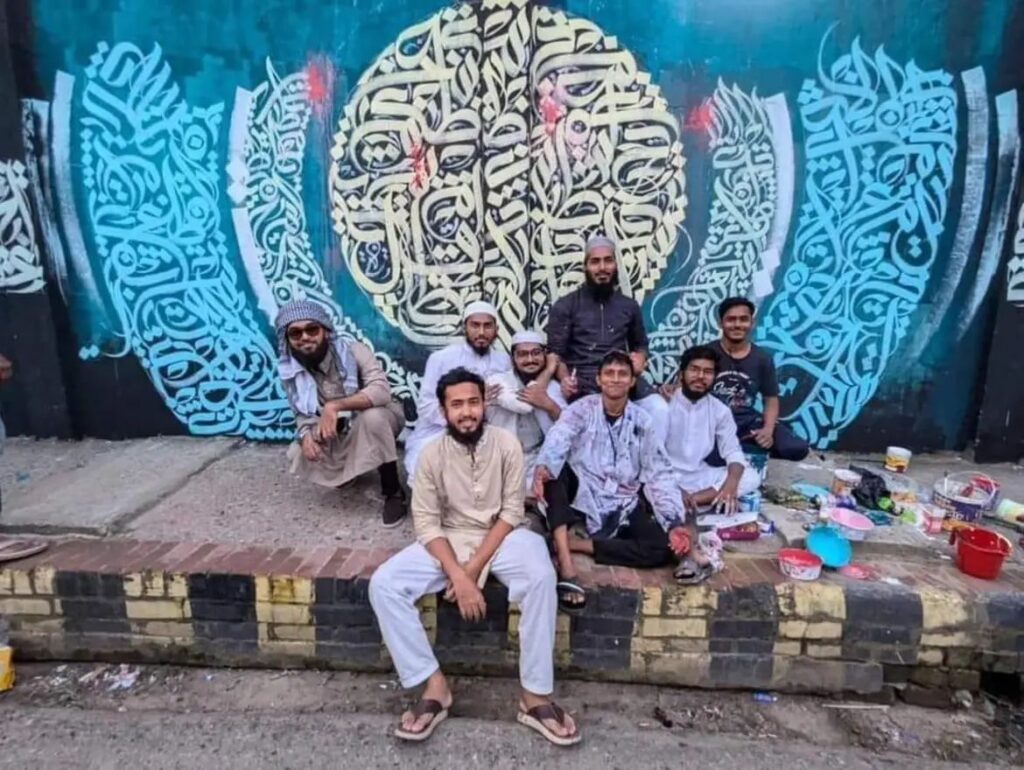
As the situation is yet to come to normal in Bangladesh, the number of these attacks and lootings will only continue to increase unless action is taken.
The harrowing accounts shared by Bangladeshi Hindus in these distress messages paint a grim picture of the persecution they face. Despite the global media spotlight on the crisis, the situation continues to deteriorate, with reports of widespread attacks, killings and the destruction of Hindu homes and temples.
The silence of the international community and the indifference of left-leaning institutions in India has emboldened the Hindu-hating perpetrators. Until concrete steps are taken, these distress messages will continue to echo and serve as a haunting reminder of how we stand to fail a community on the brink in Bangladesh.
(This article is based on an X thread by J Sai Deepak)
Subscribe to our channels on Telegram, WhatsApp, and Instagram and get the best stories of the day delivered to you personally.

